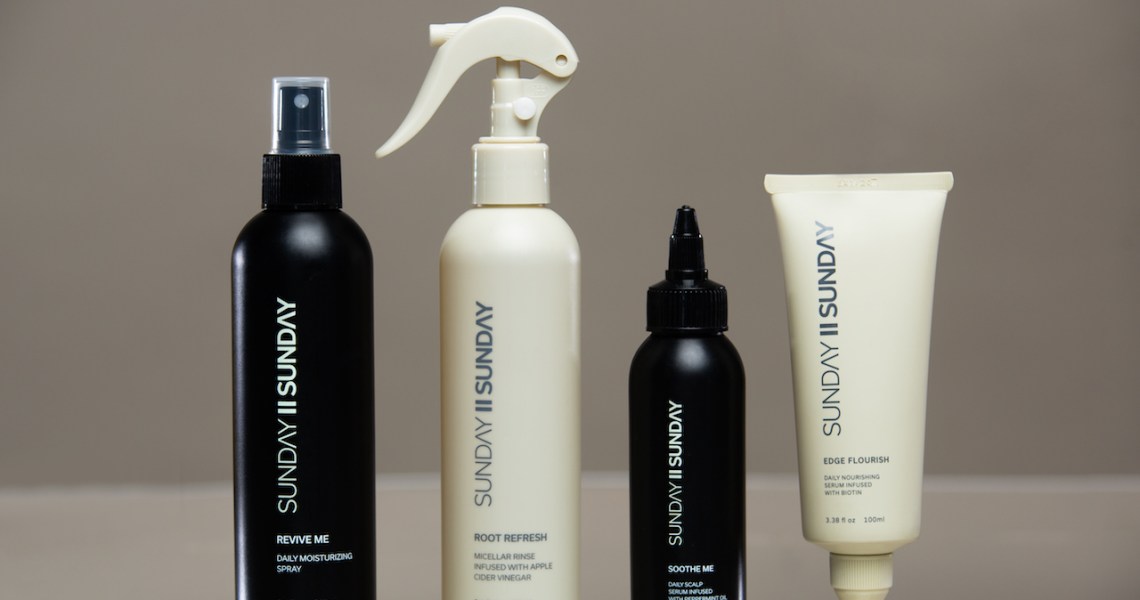As major beauty conglomerates pursue reforms to improve diversity and inclusivity across their teams and product offerings, a new wave of Black-owned startups is stepping in to fill the gaps with innovative new products filling unmet consumer needs. Case in point: Keenan Beasley, a former executive at L’Oréal Group, founded Supply Factory Brands, a venture studio focused on developing and curating a portfolio of beauty brands. It started with hair-care brand Sunday II Sunday. He joined Glossy for a Glossy+ Talk on July 22 to discuss how his company is using digital innovation and a startup mindset, complete with an inclusive staff, to fill gaps in the market. Below are a few of the points he touched on, as well as the full video of the talk.
Getting product development right from the get-go
When looking at the reasons for a lack of inclusivity in many large brands’ product collections, their first failure has been at the R&D level.
“Efficacy reigns supreme, as always,” said Beasley. “I always caution everyone to really try to build your formula from scratch, and from the bottom up,” because existing formulations and assumptions about them have been built on biased research that has not been racially inclusive. Through his experiences working with major conglomerates such as Procter and Gamble, Reckitt Benckiser and L’Oréal, he saw product development practices that were “utterly ridiculous.” He said in the hair-care industry, brands “used damaged white hair” to run tests on how products would work on textured hair, saying, “That is just the wrong starting point. One, it comes with an incredible bias that Black hair care is equivalent to damaged white hair. Just let that sink in.” At his startup, “We knew that we had to really recreate and reshape this environment to figure out the right way to build our product line.”
The importance of inclusive teams for inclusive products
The first step is revising the hiring process at all levels to ensure that a diverse team is in place to develop inclusive products.
“When we’re talking about inclusivity, I think the first thing you have to address is that you can’t create inclusive products or seek to serve a very homogenous group, without having an inclusive team,” he said. He also emphasized the importance of making sure all team members’ ideas are being recognized and that they have a path for promotions within the company. “When you think about just inclusivity, it’s really: How are you structured as a team? We’re a very flat organization, which is something I believe in. We do not have a lot of reporting lines, and we really deal with a very open culture, so that we can take all these ideas.”
The value of social media for consumer insights
Data from social media can function as a research tool, indicating blind spots that agencies miss when it comes to consumer needs not being met.
“What I’ve found now in the digital economy is that you oftentimes don’t need a lot of agencies for your insight work,” he said. “You can actually go directly to the source,” meaning social media, which is “an amazing place to garner those insights.” His company used social media to examine the “journey of hair care.”
Ad position: web_incontent_pos1
“We interviewed over 50 women to learn all what’s missing in their hair maintenance routines. We just wanted to see what they said, verbatim.” Interviews were done through video or text, “which was very inexpensive to go through,” but yielded “extremely rich insights.”
How the rise of DTC brands is changing beauty
Traditional retailers have had a high barrier to entry , so large brands appealing to the majority consumer had long been some of the only options for beauty consumers. But the rise of digitally native startup brands means the opportunity to reach a more diverse market.
The rise of digital DTC brands is “democratizing access, so you’re able to build an audience that you can ‘own,'” said Beasley. “These are relationships that you’re able to foster and build.”
He noted that this “levels the playing field a bit,” with indie brands “having just as much influence as the Pantenes of the world that can spend $400 million a year on marketing.”
Event video
Ad position: web_incontent_pos2
[s3mm type=”video” files=”plustalk-glossy-200722.mp4″ /]
Event slides














